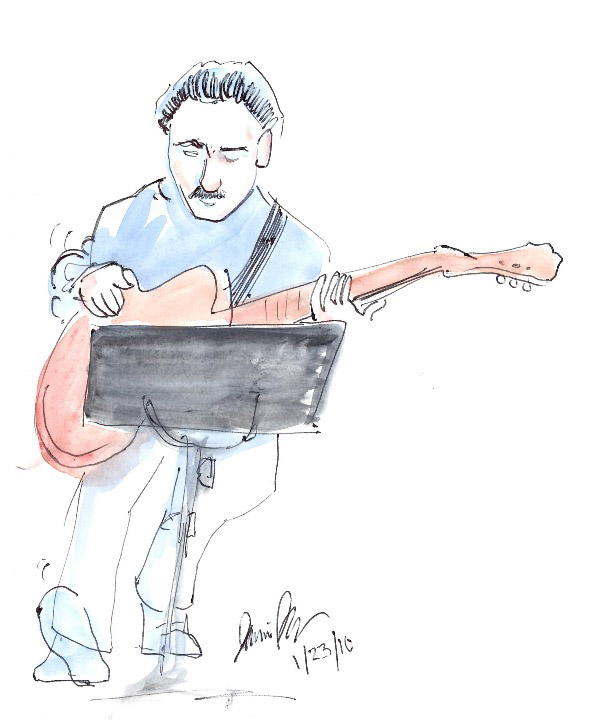Approach

I have had the privilege of studying with several wonderful guitar masters, which has, of course, influenced the way I teach:
-
Barry Galbraith: NY studio player who worked through the entire era of electric guitar.
-
Chuck Wayne: NY player who performed with Charlie Parker, from the be-bop school. Read more about Chuck
-
Mick Goodrick: modern school, expert at the psychology of improvising.
-
Gene Bertoncini: modern school, expert with linear approach, specific voicings, played on the Tonight Show with Johnny Carson for many years.
-
Charlie Banacos: Charlie was a jazz improv teaching legend for a great many professional players of all instruments. He was the primary influence for many contemporary players such as Mike Stern, Michael Brecker and Wayne Krantz. You can read bassist Jeff Berlin’s tribute here.
-
Robert Paul Sullivan: classical teacher, expert at left hand technique.
In the first lessons, we build the foundation of skills you’ll need to establish solid musicianship: the basics of chord voicings, scales for improvisation, blues comping and soloing, sight-reading, technique and music theory with a focus on understanding the guitar fingerboard. In addition, the goal is to clear up any misconceptions or gaps from your previous musical education.
Next, we blend in logical extensions of study that are in line with your goals. I encourage you to bring in recordings of material you’d like to learn. I prefer to tailor and write out specific assignments for each student rather than work from method books which I find too general.
I think it’s important that everything I give you has a practical focus. As early as possible I look for repertoire that matches your interests and also works well for learning the technical aspects we cover. Each new concept is applied to a standard tune, blues or frequently encountered chord progression. I highly recommend practicing with a digital looping pedal or recording device to provide your own accompaniment tracks. Hearing yourself played back also provides a great “mirror” from which you can judge your true progress.
What makes us say “Wow, that was a fantastic solo!”? Usually, it has a lot to do with knowing when to play something or when to omit, when to hold back or let it rip, and also being intimately familiar with the style at hand. There is also the dark art of knowing “how to get out of one’s own way”! The one-on-one teaching tradition is the best way I know to communicate what constitutes great music-making and I have devoted myself to communicating that to my students for many years. If you have a genuine desire to learn, I will find an approach that works for you!